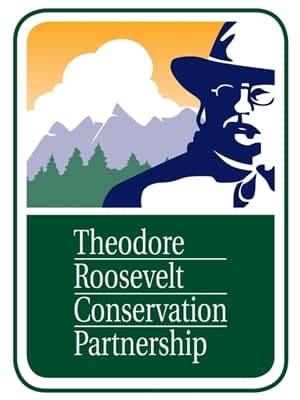EPA Takes Action to Conserve Bristol Bay, Alaska

The world-renowned fish and wildlife resources in Bristol Bay, Alaska, should be permanently conserved via actions initiated today by the Environmental Protection Agency, which is invoking its authority under the Clean Water Act to protect the region from the proposed Pebble Mine, the Theodore Roosevelt Conservation Partnership announced.
The TRCP and other sportsmen’s groups long have urged the EPA to exercise its authority, granted by section 404(c) of the Clean Water Act, to restrict the level of impact allowed on water quality and fish and wildlife populations from dredge and fill material or other harmful, large-scale mining activities in the Bristol Bay watershed. The EPA decision reflects the unique resources found in the watershed and follows overwhelming opposition to the Pebble Mine, with more than 850,000 public comments requesting protection of the southwestern Alaska region.
Sportsmen roundly praised today’s EPA announcement.
“The global hunting and angling community has worked to protect Bristol Bay from the threat of the proposed Pebble Mine for years,” said Scott Hed, director of the Sportsman’s Alliance for Alaska. “Today’s news that EPA is initiating a process under the Clean Water Act that could lead to Bristol Bay’s protection is welcomed by more than 1,000 sporting organizations and businesses and millions of sportsmen and –women, ranging from catch-and-release anglers and big game hunters to makers of fly fishing gear and firearms.
“The sporting community is united in this fight,” Hed continued, “and will continue to engage in this issue to ensure that one of the planet’s premier sport fishing and hunting destinations is permanently protected. Some places are just too valuable to be compromised; Bristol Bay is one of these places.”
The Dallas Safari Club, whose mission includes conservation, education and protection of hunters’ rights, also spoke favorably of the EPA decision. “The Dallas Safari Club is glad to see that southwest Alaska’s Bristol Bay region, one of the great fisheries of the world, will be protected for the enjoyment of the sportsmen of the future,” said DSC Executive Director Ben Carter.
Tucker Ladd, chairman of the American Fly Fishing Trade Association, weighed in as well. “AFFTA is thrilled that the EPA has taken this step towards preserving the incredible resource that Bristol Bay represents,” Ladd said. “Conservation of this fishery is crucial to our members – not only as anglers, but as businesses that will rely on the resource over the long term.”
Bristol Bay is a place of internationally recognized importance for fish, wildlife and sportsmen. The area’s lakes and streams host all five species of Pacific salmon, including the largest run of sockeye salmon in the world, as well as trophy rainbow trout. Moose, caribou, brown and black bear and waterfowl also populate the region.
“The EPA’s action to conserve Bristol Bay’s incomparable fish and wildlife resources – and its unmatched fishing and hunting opportunities – from the dangers of the Pebble Mine demonstrates not only the unique value of this region but acknowledges the overwhelming public support for conserving the area,” said TRCP President and CEO Whit Fosburgh. “Sportsmen commend the EPA for its decision, which will help sustain Bristol Bay’s natural resources, outdoor heritage and economy well into the future.”
Commercial fishing in the Bristol Bay region generates $450 million and recreational fishing generates $160 million to the Alaska economy every year. The area’s commercial fishery is the most valuable salmon fishery in the world, providing 30 percent of all Alaskan salmon harvest and 52 percent of all private sector jobs in the region.
The proposed Pebble Mine Complex would cover 54.5 square miles and could produce as much as 10 billion tons of mine waste that would have to be treated and stored in perpetuity.
Learn more about the Clean Water Act Section 404(c).
Learn more about the EPA Bristol Bay Assessment.
Read the TRCP 2014 Conservation Policy Agenda.

